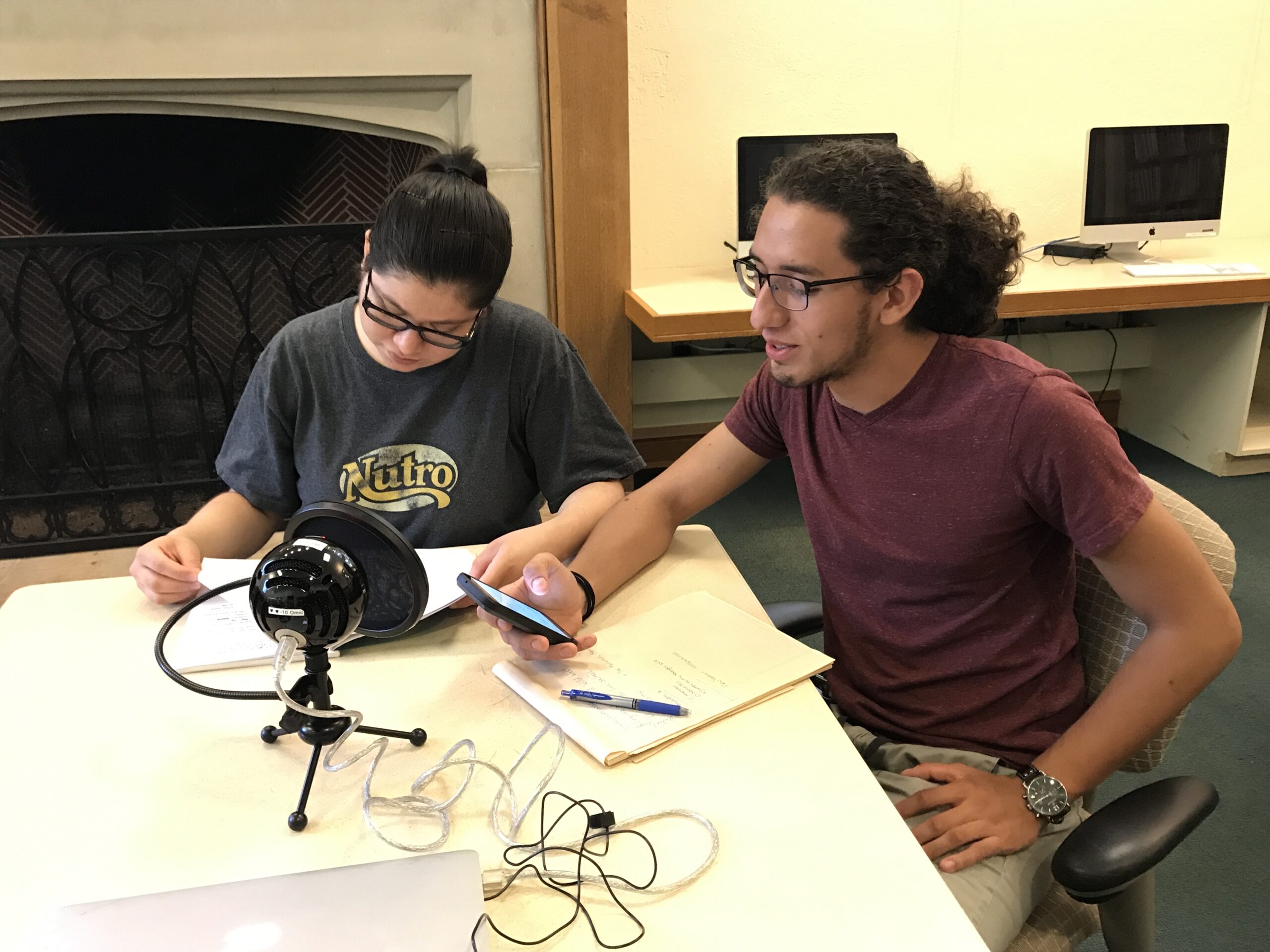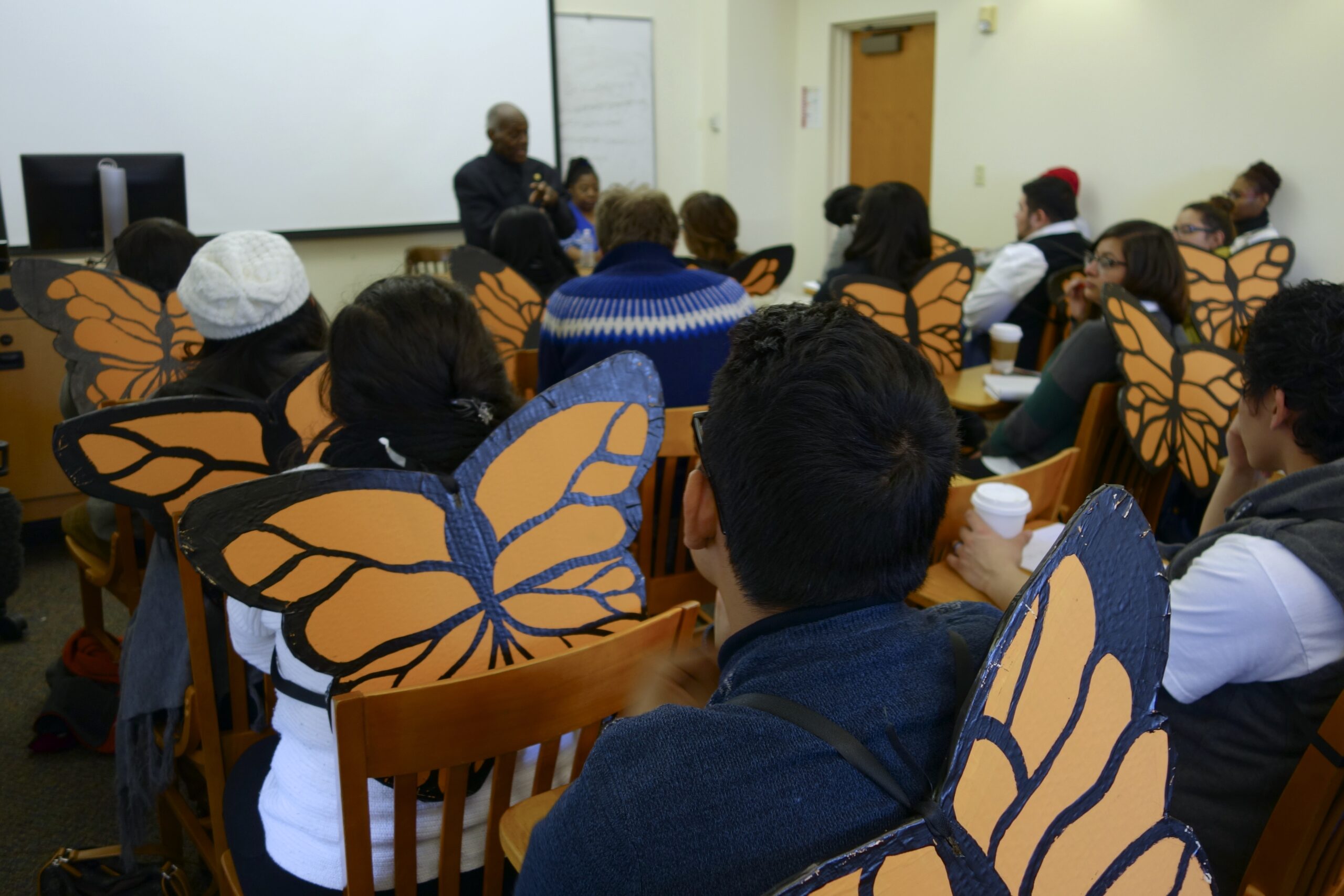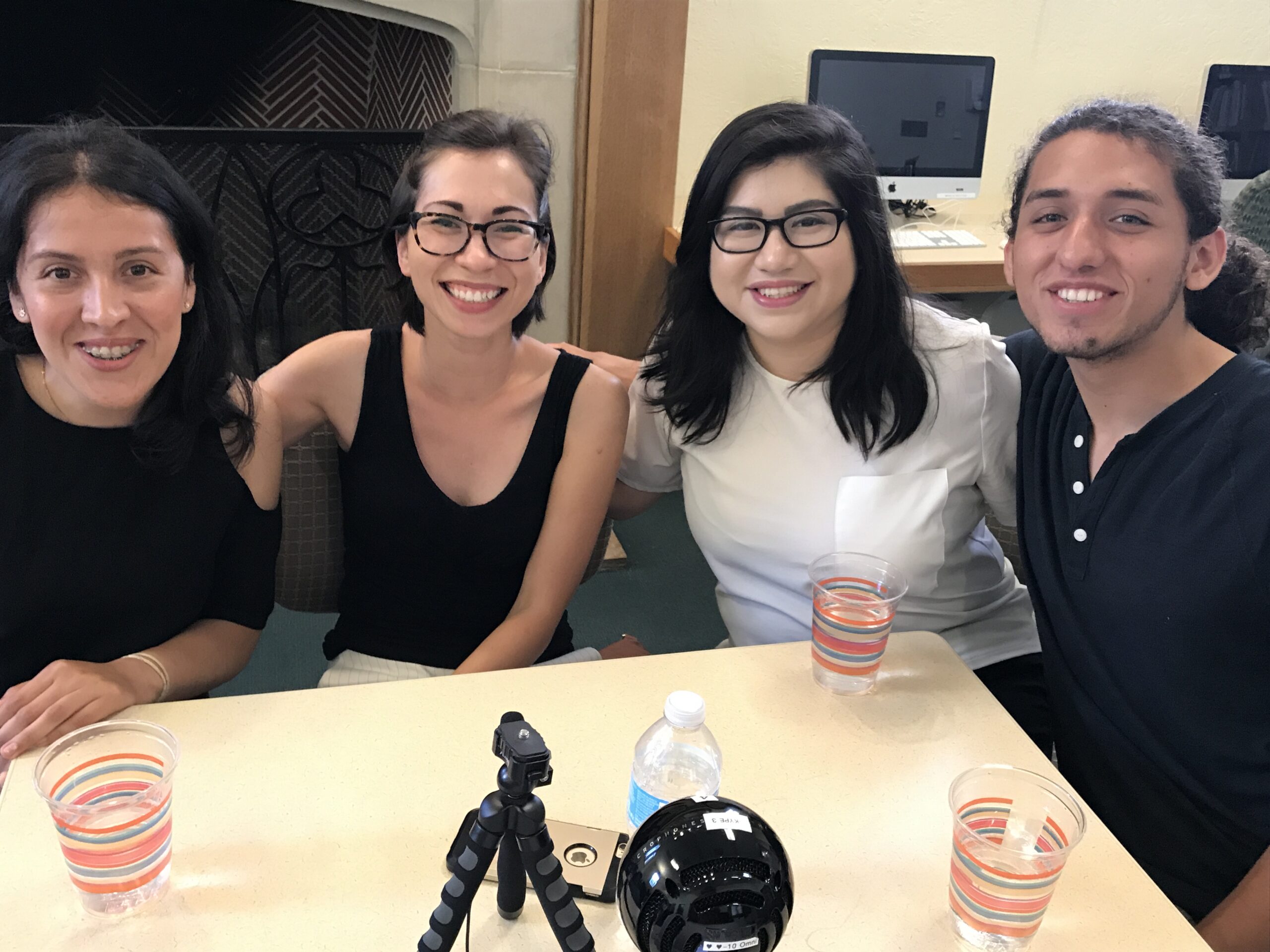The Freedom University Georgia Podcast
In this podcast they talk about shared power and speaking truth to power, leadership (especially when faced with the consistent attempts to erase their voices), movement building and strategy setting, non-violent direct action and civil disobedience, along with subsequent arrests.
In Part 2 our guests from Freedom University Georgia (FUGA) talk about their definition of leadership–from the Coalition of Immokalee Workers’ model of “we are all leaders”–through students as “co-conspirators” in their educational experience. Their questioning of the master narrative of current U.S. immigration policy has led them to collective action, with the Georgia Board of Regents and the state legislature. For all the leaders in FUGA, the university is practice for a better world.
As they have found their voices, the media often revises or erases their voices. FUGA speaks truth to power, and those outside can never fully understand the context. In addition, the idea of a democratic classroom is open to sabotage, for those beholden (whether they acknowledge it or not) to the master narrative of traditional banking education (in its various forms) have to find a fatal flaw in the utopian experiment, even if they have to invent a flaw.
It is my hope that this podcast provides some space for these voices to be more fully heard, and the butterflies to soar (see Part 4 for more on butterflies!).
In this bonus segment Freedom University Georgia students show us how the use of the arts informs and propels their movement toward educational equality. They give us insights into their journey across borders.
They share nine poems with us:
“Sandman,” “The Life of a Crayon,” and “Maybe” — Mileidi Salinas
“A Monster” –Arizbeth Sanchez
“Engines of the Wild, Wild West” — Rafael Aragon
“Nameful” — Arizbeth
“El Señor de los Salmos” — Rafael
link to the translation
“Letter to My Younger Self” — Arizbeth
“Astronomy” — Rafael


In this 12 minute bonus segment Arizbeth and Rafael respond to The New Yorker article by Jonathan Blitzer from May 22, 2017: “An Underground College for Undocumented Immigrants.” Rafael ends the segment with his poem, “The Monarch Martyr.” In the photo to the left (taken by Laura Emiko Soltis) you see Freedom U. students at a University of Georgia class right before their arrest. The butterfly wings idea originated from artist activist David Solnit, a puppeteer who has used his art in social movements for over thirty years (e.g. the World Trade Protests in Seattle in 1999). He uses art in protest and revolution, and the Freedom U. students adapted his creative strategy for their courageous acts of resistance.
How to support Freedom University Georgia? Donations to this grassroots sanctuary movement go a long way to making their dreams of educational equality a reality. Professors volunteer, but funds are needed for classroom space, books, college tours, and pizzas. If you live in metro Atlanta, there are volunteer opportunities, such as being a driver. If you are connected with a college or university, make sure you have policies to support and provide opportunities for students like the ones on this podcast. Check out their website [www.freedomuniversitygeorgia.com/donate] and Facebook page [Freedom U. Georgia] for current updates and connections. Nothing Never Happens will keep in touch with these new friends and will post updates too.

about the guest/s
resources
Freedom University Georgia (FUGA) is “a modern-day freedom school based in Atlanta.” They meet the needs of undocumented students who are denied access to Georgia’s top public universities and to in-state tuition. FUGA offers college-level classes, SAT prep classes, and leadership training. The director and student leaders of FUGA, Mileidi Salinas, Dr. Laura Emiko Soltis, Arizbeth Sanchez, and Rafael Aragon, met with me for a conversation on June 16, 2017. We discussed their work as learners who share the roles of teachers and students in the work of living into Article 26 of the United Nations Declaration of Human Rights (December 10, 1948):
1. Everyone has the right to education. Education shall be free, at least in the elementary and fundamental stages. Elementary education shall be compulsory. Technical and professional education shall be made generally available and higher education shall be equally accessible to all on the basis of merit.
2. Education shall be directed to the full development of the human
personality and to the strengthening of respect for human rights and
fundamental freedoms. It shall promote understanding, tolerance and friendship among all nations, racial or religious groups, and shall further the activities of the United Nations for the maintenance of peace.
3. Parents have a prior right to choose the kind of education that shall be given to their children.
Note that this article says “everyone” not “citizens.” The students of FUGA are undocumented because of a broken and unjust immigration system. They are part of “everyone.”
Human rights are universal, inalienable, and indivisible and interdependent. FUGA takes an activist stance to hold the state of Georgia accountable, while they call out the state legislature and the Board of Regents of the university system as human rights abusers.
In their document, “A New Appeal for Human Rights” (May 16, 2017), members of FUGA respond to the Georgia state legislature’s passing of HB 37, the nation’s first “Anti-Sanctuary Campus Bill.” Along with the right to education, they address the rights of non-discrimination, housing, voting, religious freedom, workers’ rights, and healthcare. This document, available on their website, provides the most current context of undocumented students in Georgia, and highlights the urgency of democratic education in the midst of many roadblocks.
Freedom University Georgia: http://www.freedomuniversitygeorgia.com/
Click here for the article in The New Yorker
New Yorker Video on Freedom University Georgia: “The University That Won’t Be Stopped”:
Laura Emiko Soltis, “From Freedom Schools to Freedom University: Liberatory Education, Interracial and Intergenerational Dialogue, and the Undocumented Student Movement in the U.S. South,” Souls: A Critical Journal of Black Politics, Culture, and Society, Vol. 17, Issue 1-2, June 2015:
http://www.tandfonline.com/toc/usou20/17/1-2?nav=tocList
Georgia Undocumented Youth Alliance (GUYA):
https://www.facebook.com/guyaconnect/
Aviva Chomsky, Undocumented: How Immigration Became Illegal, Beacon Press, 2014.
Michelle Alexander, The New Jim Crow: Mass Incarceration in the Age of Colorblindness, The New Press, 2012.
Coalition of Immokalee Workers: http://www.ciw-online.org/